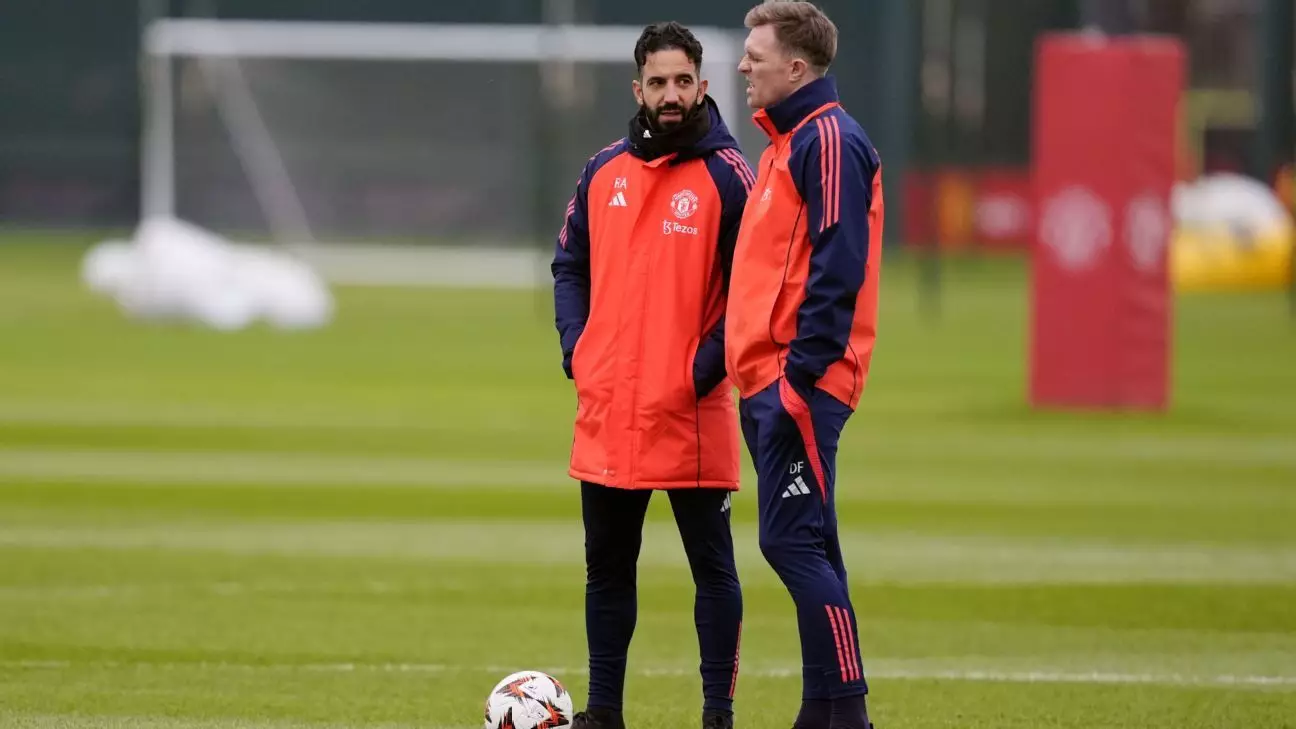Manchester United finds itself at a pivotal juncture, marked by both external upheaval and internal determination. Ruben Amorim, the recently appointed manager, is faced with the unforeseen departure of Dan Ashworth, the club’s sporting director, who left his post just five months after joining. This article delves into the implications of Ashworth’s exit, the strategic direction under Sir Jim Ratcliffe, and the broader context that shapes Amorim’s tenure as he seeks to steer United through turbulent waters.
Dan Ashworth’s resignation from Manchester United can be characterized as a surprising disruption amidst a restructuring process intended to rejuvenate the iconic club. Hailing from a successful stint at Newcastle, Ashworth was initially viewed as a cornerstone of Ratcliffe’s strategic vision to elevate United’s performance. His exit raises questions about the stability of the club’s leadership during a critical rebuilding phase. As United attempts to navigate the murky waters of competitive football, the loss of such a key figure, albeit in the sporting realm, does not bode well for cohesive implementation of strategies essential for success.
Despite the setback, Amorim expressed a resilient mindset, highlighting the support he has received from the ownership and other staff members. He emphasized that the essence of team dynamics is not solely anchored to one individual but rather to a collective vision. “The path is really clear for everybody,” Amorim stated, attempting to instill confidence during a challenging time. His assertion reflects a critical understanding of football’s volatile nature, where change is a constant, and adaptability is vital for survival.
Sir Jim Ratcliffe’s investment in Manchester United has been met with anticipation and skepticism. His plans for the club involve a long-term commitment to improvement, focusing on sustainable growth rather than quick fixes. Ashworth’s exit, therefore, poses a substantial barrier for Ratcliffe’s strategy, as it entails recalibrating operational frameworks that were set in motion with Ashworth’s expertise.
Jason Wilcox, now taking the reins of recruitment, faces the challenge of restructuring the team just ahead of the January transfer window. The club’s recent statements suggest they are ready to entertain offers for several first-team players. This openness to change alludes to a possible reshuffling of the squad, aimed at infusing fresh talent but also at addressing existing deficiencies. With financial discipline at the forefront, the recruitment strategy may lean on the academy, further promoting youth development as a critical pillar of Ratcliffe’s vision.
Amorim’s Approach and Player Accountability
In his early tenure at Old Trafford, Amorim has expressed intentions to thoroughly evaluate his squad while holding players accountable for their performance. The importance of establishing a clear identity—both in formation and player characteristics—is central to his philosophy. By focusing on the profiles of players, he aims to construct a cohesive unit capable of competing at the highest levels.
His remarks about players needing to perform or risk being transferred illustrate a firm stance that prioritizes accountability and results. “If we don’t win, the coach goes, the player goes,” Amorim warned, capturing the harsh realities of football where performance under pressure dictates life at a massive club like Manchester United. This unyielding focus on improvement echoes a larger narrative about the necessity of results in the sport’s competitive landscape.
The Road Ahead: European Aspirations
As Amorim and his squad gear up for their Europa League clash against Viktoria Plzen, the stakes could not be higher. A positive result would not only affirm their place in the tournament but also signal momentum as they seek to solidify their position both domestically and in Europe. Amidst the backdrop of Ashworth’s exit, the focus now shifts on eliciting top performances from the players and ensuring that the team remains cohesive.
Given Viktoria Plzen’s impressive home record, the encounter presents significant challenges. However, Amorim’s emphasis on winning, coupled with the strategic endeavors initiated by Ratcliffe and Wilcox, reflects an organization determined to overcome adversity. The ethos of resilience, critical for any elite sport, will be the determining factor in an increasingly important season for Manchester United.
While Dan Ashworth’s departure presents immediate challenges, the aligned vision of the club’s leadership, combined with Ruben Amorim’s commitment to accountability and performance, lays the groundwork for potentially positive outcomes ahead. United stands at the crossroads of growth and challenge, navigating a path that, while fraught with obstacles, also teems with opportunities for rejuvenation.
